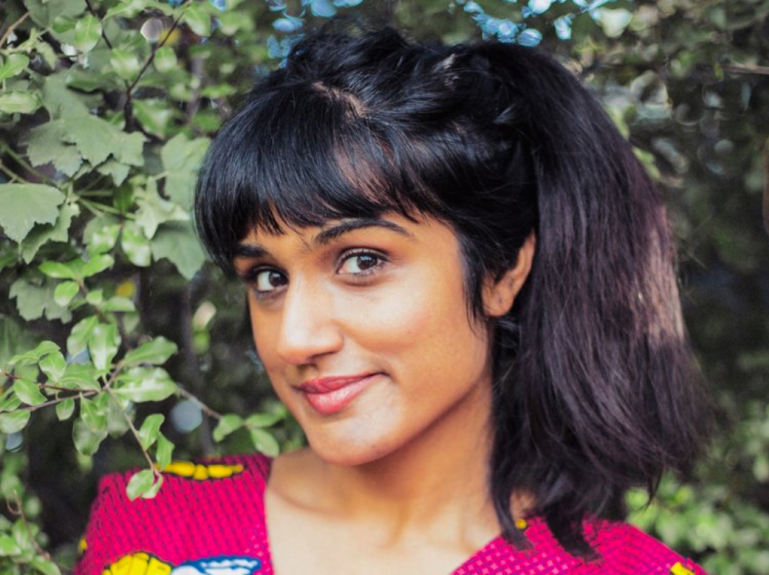Working across multiple platforms used to make Vidya Rajan feel like “a bit of a freak”.
The writer and comedian is known for showcasing her skills across different media, whether it be through her work as a writer-in-residence at the Malthouse Theatre, in stand-up comedy, or as a contributor to series such Why Are You Like This?, The Feed, and Amazon’s upcoming comedy Deadloch.
She has also combined her talents to produce works such as In Search of the Lost Scroll, an interactive digital experience that brings together speculative fiction, game design, and performance art, which was awarded Best Experimental Work at the 2022 Melbourne Fringe and shortlisted for a New Media Writing Prize in the UK.
Speaking to IF, Rajan said a shift in the way multi-disciplinary artistry was perceived had made her more comfortable thinking in terms of more than one format.
“I’m really interested in stuff that plays with form,” she said.
“I think there’s lots to be done through the combination of gaming and television and things that are more audience participatory.
“It feels like there’s more recognition of that now and it’s like an asset rather than something to beat yourself up about.”
Her penchant for interactive storytelling will again be highlighted in the upcoming TikTok series Jaffys, a 15-part scripted rom-com told through two interconnected TikTok accounts belonging to Melbourne teens, as they navigate the transition from high school to uni.
Audience members have the opportunity to interact with the fictional characters via real-time releases as part of what Rajan describes as an “alternative universe strategy”.
Written alongside Jenna Guillaume, and produced by Unless Pictures, it was one of four Australian projects selected for funding through Screen Australia, NZ On Air, and TikTok’s Every Voice initiative.
Rajan also showcased her digital storytelling chops in the 2022 SBS and Screen Australia Digital Originals program, where she collaborated with Alistair Baldwin and Renée Marie Petropoulos on Earshot, a project about a seemingly happy Indian-Australian actress is asked to record the last messages of a missing immigrant woman for a true crime podcast.
The team was one of seven to receive development funding, and while their entry was not greenlit for production, they were still able to benefit from the collaborative environment.
“We all had a meeting in Sydney and a few workshops, and I was just so delighted by everyone’s ideas,” Rajan said.
“The most exciting aspect of it was like knowing that there are all these other creatives out there.”
Rajan will next be seen in Haven’t You Done Well Productions’ Aunty Donna’s Coffee Cafe on the ABC, for which she was also part of the writers’ room as a story consultant.
She has also written an episode for a children’s sci-fi program from Princess Pictures that will also be broadcast on the ABC.
With a host of screen credits already to her name already, the Melbourne-based performer was asked about the challenges for emerging comedians breaking into television in an article published in the Sydney Morning Herald last year, noting that unlike the ’90s or early 2000s, “there hasn’t been a platforming of talent for the full millennial generation”.
Six months later, Rajan said there may be cause for greater optimism, especially in the wake of yesterday’s National Cultural Policy announcement, which confirmed the introduction of local content quotas for SVOD services.
“[The content obligations] definitely feel like more than a jolt of hope we’ve had in a while – especially if the streamers commit to it through scripted commissions,” she said.
It’s a window of opportunity Rajan is hoping to take advantage of through not only her contributions to writers’ rooms but also her own projects, which include a tech satire series about ‘resource daddies’ that acquire bunkers to hide from climate change, as well as a potential “mildly autobiographical” coming-of-age feature about a South Asian protagonist that is thrust into sudden responsibility for care in our family context.
As a South Asian creative, she identified the recognition of diversity as one of the positive changes to occur during her time in the industry.
“I feel like it can be like a bit of a siren call,” she said.
“It’s not about just like tossing in people either; you actually have to build structures around supporting them and listening to what they want to do.
“I do feel like there has been some movement on that now.”


